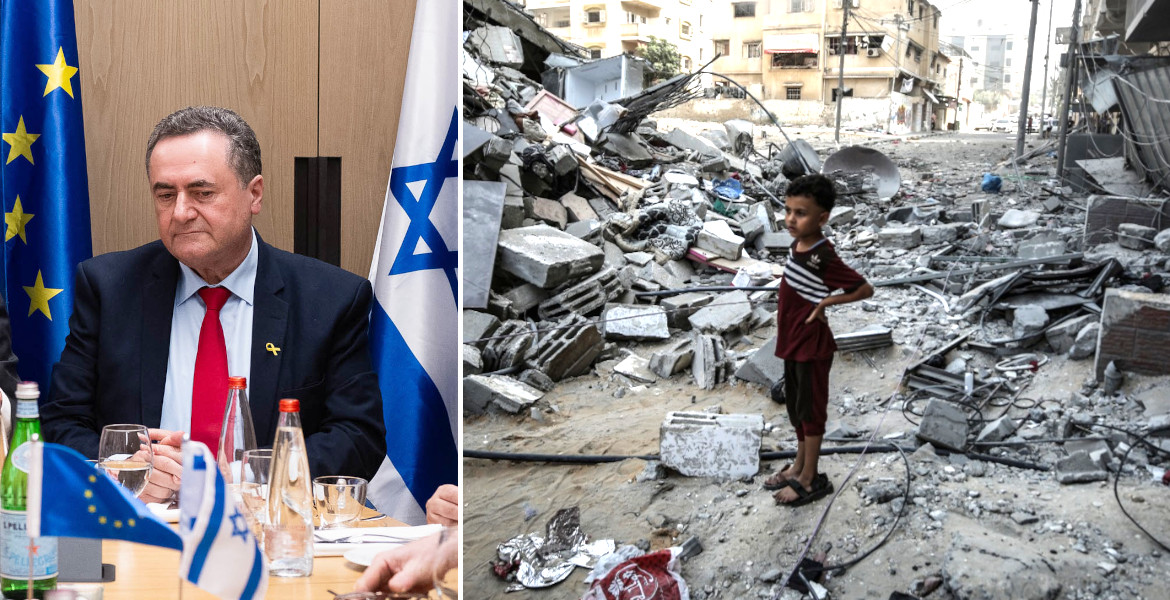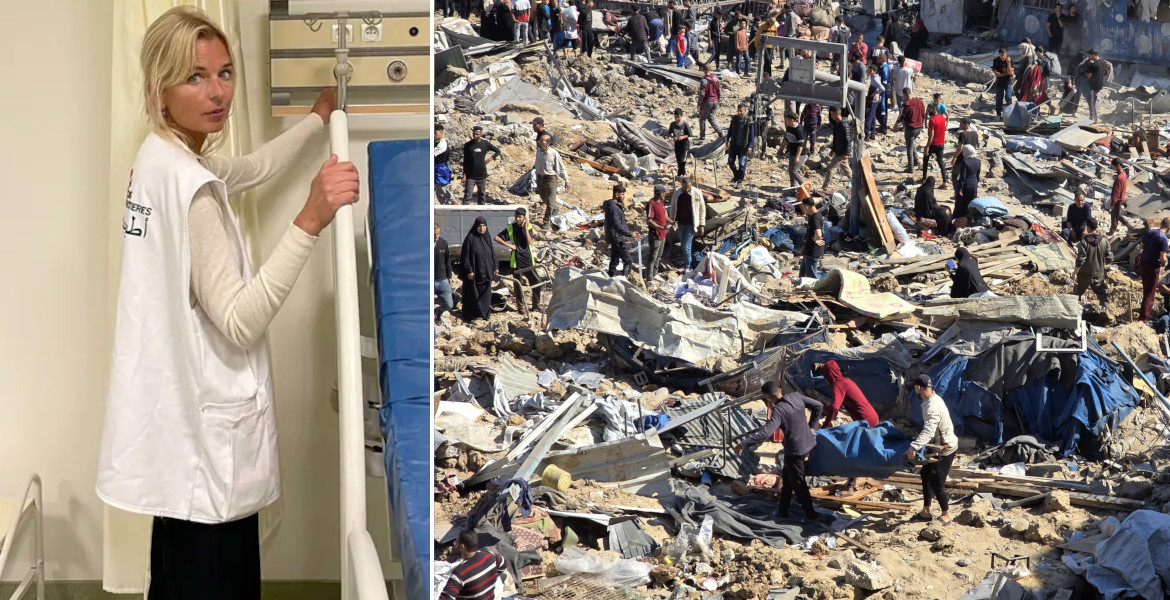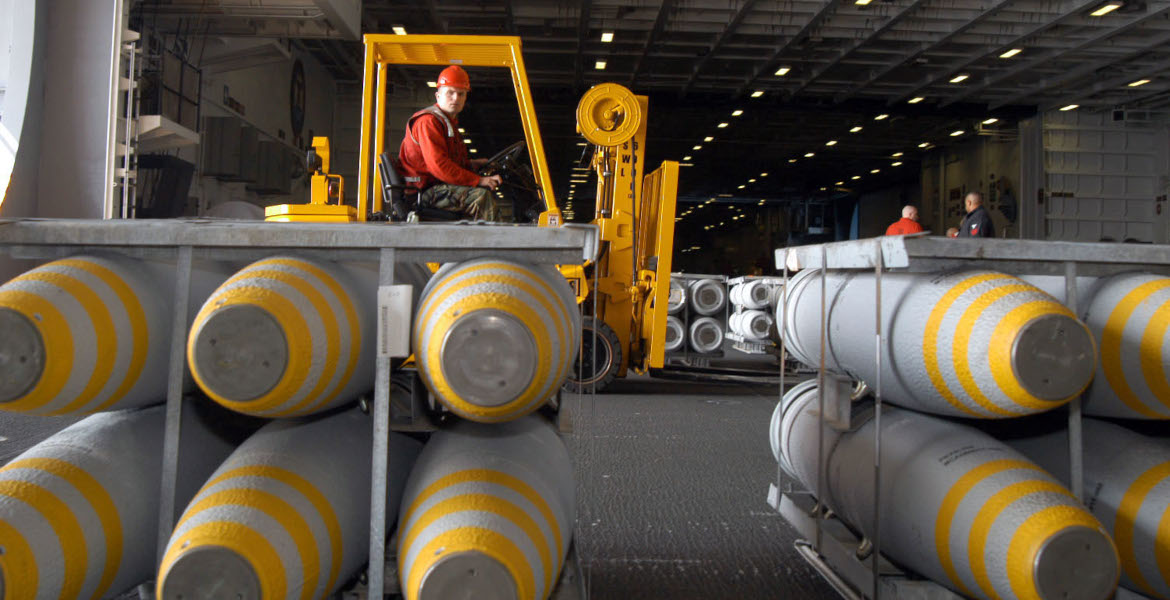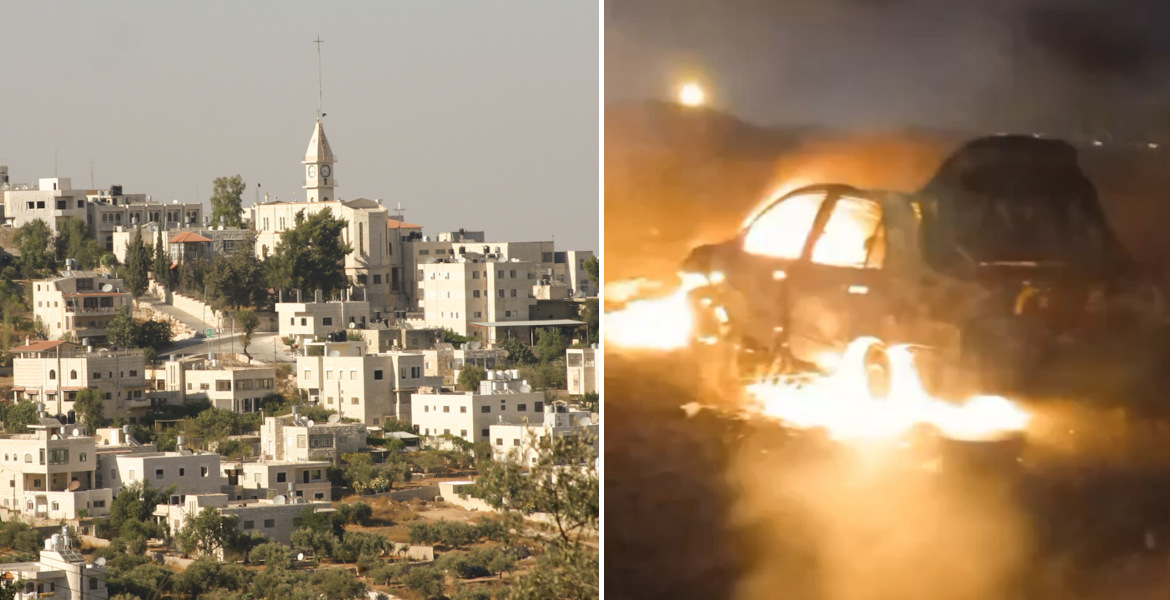The Israeli parliament has voted in favor of two bills that effectively ban the UN Relief and Works Agency for Palestinian Refugees from operating in the country.
– UNRWA as an organization is infected by terrorism. It’s not a few people that UNRWA employees want to claim, it’s the whole organization, says David Mencer, a spokesman for the Israeli government.
UNRWA has long been the main relief organization in Gaza, and since Israel launched its ground invasion, it has also been one of the few actors to remain in the area, working to provide various forms of emergency assistance to the Palestinian civilian population – as well as frequently drawing attention to and raising the alarm about Israeli abuses and crimes.
The Israeli side has not estimated the organization’s presence, claiming that 10% of its approximately 13,000 employees have “terrorist links”, and that staff from the organization were involved in the 7 October attacks.
In response to the terror allegations, two laws were passed by a large majority. The first prohibits UNRWA from operating on Israeli territory and the second makes it illegal for Israeli authorities to have any contact with the UN agency.
In practice, the laws will also make it very difficult for the organization to continue operating in Gaza and the occupied West Bank, as it will no longer be able to coordinate its activities with the Israeli authorities.
“Unprecedented”
Representatives of both the UN and the EU criticize the decision, saying it will have disastrous consequences for the civilian population. Even the United States, Israel’s most important ally, urged its politicians to reject the ban.
The head of UNRWA, Philippe Lazzarini, condemned the decision, writing on X that Israel’s action “is unprecedented and sets a dangerous precedent”.
“It opposes the UN Charter and violates the State of Israel’s obligations under international law. This is the latest in the ongoing campaign to discredit UNRWA and delegitimize its role towards providing human-development assistance and services to Palestine Refugees”.
The vote by the Israeli Parliament (Knesset) against @UNRWA this evening is unprecedented and sets a dangerous precedent. It opposes the UN Charter and violates the State of Israel’s obligations under international law.
This is the latest in the ongoing campaign to discredit…
— Philippe Lazzarini (@UNLazzarini) October 28, 2024
”These bills will only deepen the suffering of Palestinians, especially in Gaza where people have been going through more than a year of sheer hell. It will deprive over 650,000 girls & boys there from education, putting at risk an entire generation of children. These bills increase the suffering of the Palestinians & are nothing less than collective punishment”, he continues.
Calls on the international community to act
He also stresses that the refugee status of Palestinians will not disappear just because Israel puts an end to UNRWA and that the UN will continue to work for a just and lasting solution to the plight of the Palestinians.
“I urge Member States to take action to support UNRWA commensurate with the gravity of the situation and risks”, he further declares.
Following the adoption of bills by the Knesset against @UNRWA aimed at preventing it to operate in the occupied Palestinian Territory, I wrote to the President of the General Assembly.
These bills will not terminate the refugee status of the Palestinians, which exists… pic.twitter.com/PcOlN3zi8t
— Philippe Lazzarini (@UNLazzarini) October 30, 2024
The United Nations Relief and Works Agency for Palestine Refugees (UNRWA) was established in 1949 to help the approximately 700 000 mainly Arab refugees who had been expelled from their homes when the State of Israel was established the previous year.
From the outset, the idea was that the relief effort would be a temporary solution and that the refugees would eventually return to their homes - a solution Israel has consistently opposed.
75 years later, there are 5.9 million Palestinians registered as refugees by the UN and receiving assistance from UNRWA. In addition to Gaza and the West Bank, they live in large refugee camps in Lebanon, Syria and Jordan.
The UN agency has about 30,000 employees - the majority Palestinians, and 90% of the organization's donations come from UN member states.








